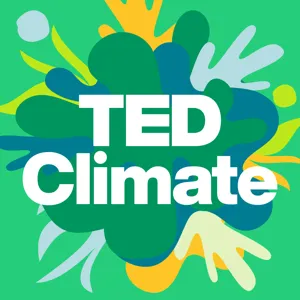Podcast Summary
Exploring the importance of protecting places and the role of technology in making our lives easier: The 'Guardians of the River' podcast delves into water conservation ethics and mythical creatures, while Canva's AI tools simplify design tasks. Businesses use Slack for collaboration and task management as we navigate complex work environments, and the Colorado River's future highlights the need for compromise and unity in addressing environmental issues.
There are important stories out there that make us think deeply about the world and our role in it. The "Guardians of the River" podcast, for instance, explores the question of how we protect places and what makes them ours to protect. It's a compelling series that delves into the mysteries of water, conservation ethics, and even mythical creatures. On a different note, technology can also make our lives easier, as demonstrated by Canva's AI tools that can generate slides and words in seconds. But as businesses grow, managing work becomes more complex. That's where tools like Slack come in, helping us collaborate, automate tasks, and make the most of our time. Lastly, the Colorado River's future underscores the importance of compromise and unity in addressing pressing environmental issues. Ultimately, these stories remind us of the power of exploration, innovation, and collaboration in making a difference.
Understanding the Okavango Water System and Its Impact: Dr. Steve Boyes' dedication to the Okavango water system has led him to become a champion for its preservation, as the inconsistent availability of water can lead to devastating consequences for both wildlife and human communities.
The Okavango Delta, a massive freshwater delta in Southern Africa, is a vital source of life for thousands of elephants, millions of birds, and hundreds of hippos in Angola, Namibia, and Botswana. However, the water that feeds this delta is a mystery, and its inconsistent availability can lead to devastating consequences, including the desertification of the region. Dr. Steve Boyes, a South African zoologist, has dedicated himself to understanding the Okavango water system and protecting it. His commitment to the cause has tied the fate of the Okavango water system to his own, and he has become a champion for its preservation. As the people of the region grapple with the uncertainties surrounding the water's origin, usage, and availability, the stakes are high for not just the wildlife, but also the human communities that depend on it.
Integrating Science and Local Knowledge in Eastern Angola: In regions with limited scientific research, combining local stories and traditions with scientific data leads to a more comprehensive understanding of ecosystems and their inhabitants. Respecting and valuing local knowledge is crucial to building trust and gaining valuable insights.
Science and local knowledge are interconnected and essential in understanding the mysteries of the natural world, particularly in regions with limited scientific research, such as Eastern Angola. During my time volunteering there, I discovered the importance of integrating local stories and traditions with scientific data to gain a more comprehensive understanding of the ecosystem and its inhabitants. An encounter with an indigenous hunter, Sarabecca, highlighted this concept. Although we spoke different languages and came from different backgrounds, he sensed a connection and shared his knowledge with me. Through our shared experiences in the forest, we built trust and I gained valuable insights into the local wildlife and culture. This experience underscores the importance of respecting and valuing local knowledge, and recognizing that it can complement and enhance scientific research. By combining these two approaches, we can gain a more holistic understanding of the natural world and the communities that depend on it.
Hidden Lakes in Eastern Angola: Guardians of Southern Africa's Rivers: The preservation of Eastern Angola's hidden lakes, vital water sources for Southern Africa, requires balancing local culture and traditions with sustainable conservation practices to mitigate threats from natural disasters, industrial development, and historical conflicts.
The source lakes in Eastern Angola, though hidden and seemingly untouched, are of immense importance as they feed rivers across Southern Africa and are home to unique ecosystems. However, these delicate environments face numerous threats from natural disasters, industrial development, and historical conflicts. The local community, acting as guardians, have passed down myths and legends about the protective dragon Mukisi, which may hold clues to preserving these precious bodies of water. The challenges these guardians face in protecting the lakes are significant, requiring efforts to mitigate threats from various sources while addressing the historical and generational wounds of the community. Ultimately, the preservation of these vital water sources requires a balance between respecting the local culture and traditions, and implementing sustainable conservation practices.
Exploring the importance of preserving the world's wild places: The Okavango Delta's source slicks and other remote, wild places are precious and deserve protection. The water system in the Okavango Delta plays a crucial role in preserving this unique ecosystem.
Key takeaway from this episode of "Guardians of the River" is that the world's wild and remote places, like the Okavango Delta and its source slicks, are precious and worth protecting. The podcast, hosted by Kerlan Kosta, delves into the importance of preserving these areas and raises the question of whether there are any places left on Earth untouched by human impact. The discussion also touches upon the significance of the water system in the Okavango Delta and its potential role in preserving this unique ecosystem. Listeners can find this podcast on various platforms including Spotify, Google Play, Apple Podcasts, Sound Club, and Stitcher. Ultimately, the podcast serves as a reminder of the importance of protecting the natural world and the role we can play in preserving its most remote and wild places.






